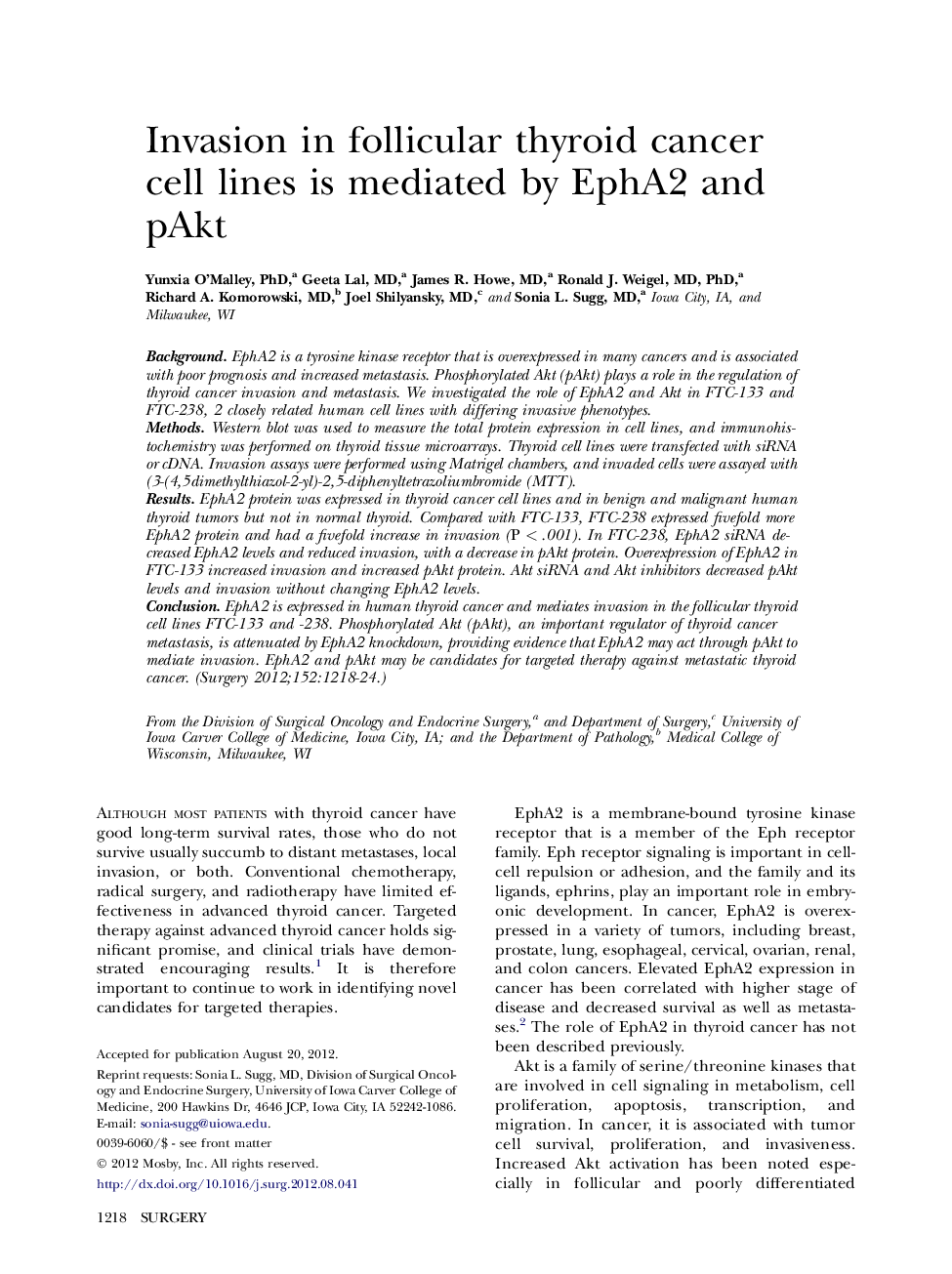| Article ID | Journal | Published Year | Pages | File Type |
|---|---|---|---|---|
| 4307745 | Surgery | 2012 | 7 Pages |
BackgroundEphA2 is a tyrosine kinase receptor that is overexpressed in many cancers and is associated with poor prognosis and increased metastasis. Phosphorylated Akt (pAkt) plays a role in the regulation of thyroid cancer invasion and metastasis. We investigated the role of EphA2 and Akt in FTC-133 and FTC-238, 2 closely related human cell lines with differing invasive phenotypes.MethodsWestern blot was used to measure the total protein expression in cell lines, and immunohistochemistry was performed on thyroid tissue microarrays. Thyroid cell lines were transfected with siRNA or cDNA. Invasion assays were performed using Matrigel chambers, and invaded cells were assayed with (3-(4,5dimethylthiazol-2-yl)-2,5-diphenyltetrazoliumbromide (MTT).ResultsEphA2 protein was expressed in thyroid cancer cell lines and in benign and malignant human thyroid tumors but not in normal thyroid. Compared with FTC-133, FTC-238 expressed fivefold more EphA2 protein and had a fivefold increase in invasion (P < .001). In FTC-238, EphA2 siRNA decreased EphA2 levels and reduced invasion, with a decrease in pAkt protein. Overexpression of EphA2 in FTC-133 increased invasion and increased pAkt protein. Akt siRNA and Akt inhibitors decreased pAkt levels and invasion without changing EphA2 levels.ConclusionEphA2 is expressed in human thyroid cancer and mediates invasion in the follicular thyroid cell lines FTC-133 and -238. Phosphorylated Akt (pAkt), an important regulator of thyroid cancer metastasis, is attenuated by EphA2 knockdown, providing evidence that EphA2 may act through pAkt to mediate invasion. EphA2 and pAkt may be candidates for targeted therapy against metastatic thyroid cancer.
